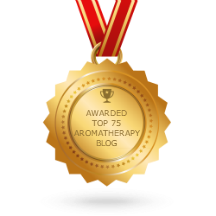
Was browsing an issue of The International Journal of Essential Oil Therapeutics, and came across a study on the in vitro use of the essential oil of Myrtus Communis (Myrtle) against Candida albicans.
The article states that Candida albicans is the most frequently isolated human fungal pathogen. This is becoming even more of a problem since drug resistant strains are emerging, resistant to the most commonly used anti-fungal drugs.
Twelve different strains of Candida were tested, the majority of the strains were resistant to Fluconazole (the test medication.) Myrtle Essential Oil showed clear activity against all strains, including the drug resistant strains.
Granted, these are tests on laboratory cultures, in petri dishes. But if I were battling Candida, I would certainly be tempted to try a weak dilution of Myrtle oil, rather than the more usually recommended Tea Tree Oil.
Odd...I've always used and recommended Myrtle Oil for respiratory problems, it's a wonderfully gentle oil for treating bronchial problems in children or the elderly. I've never used it as an anti-fungal however. Time to rewrite our online description!


3 comments:
Great Post! It helped me to make sense of some of the issues with the subject.
http://www.colonialmed.com/
transform@colonialmed.com
Dharmendra
I'm late reading this but am very interested. Does the article recommend ingesting a dilution of the myrtle to combat the Candida, or would inhaling provide as much benefit?
Unfortunately, it does not. It was a lab test... in a petri dish.
My first thought is the oft suggested treatment for vaginal candida... a tampon soaked in diluted tea tree oil. I would substitute the myrtle, since it is milder than the tea tree.
I am not, legally, allowed to suggest the internal use of any of the oils.
sorry!
Post a Comment